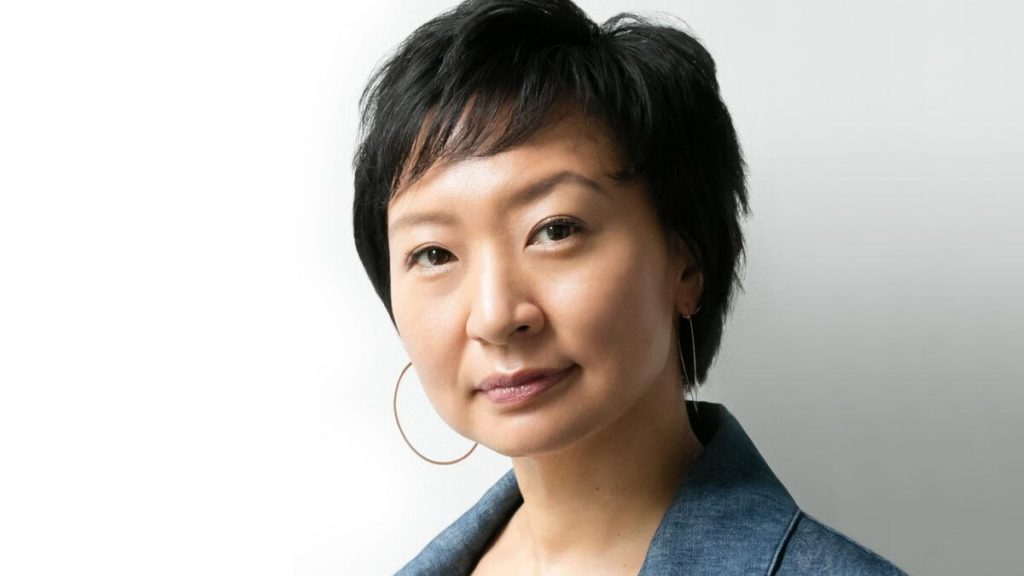On Tuesday, the English department’s creative writing faculty presented the second event of the Distinguished Writers Series: A reading with author Cathy Park Hong. Hong, whose 2020 book “Minor Feelings” won the National Book Critics Circle award in Autobiography, read an excerpt from her novel over a Zoom call and simultaneous Facebook live stream, and afterward held a brief question-and-answer session hosted by Ji-Song (Robert) Ku, associate professor of Asian and Asian American studies.
Tina Chang, director of creative writing in the English department at Binghamton University, introduced the event and Hong as her own personal friend. Both taught at Sarah Lawrence College, where they first met, and have spent large portions of their careers as poets — the type of writing that Hong initially made a name for herself. Prior to her success with nonfiction in “Minor Feelings,” Hong was known for poetry collections such as “Engine Empire” and “Dance Dance Revolution,” in addition to working as a professor at Rutgers-Newark University.
“I’ve known [Hong] since we first started out as writers,” Chang said. “I invited her because I thought it would be engaging for our students and the wider community to see a writer functioning in multiple genres. While [Hong] started out as a poet, her work is wide-ranging, as she has moved toward nonfiction. Her book ‘Minor Feelings’ also speaks directly to this moment. As we are encountering a spike in Asian and Asian American hate crimes, her book explores and investigates the vast interior space of the Asian American experience, not as a violent spectacle but a series of subtle yet powerful revelations.”
Hong’s writing, deeply interconnected with the Asian American experience, is certainly timely in the wake of violence against the Asian communities that have rocked the country in the past few weeks. Chang thinks that a key to solving these types of societal problems can lie in literature, specifically in writers such as Hong.
“A writer like [Hong] brings a sense of gravity and clarity to the power of the Asian American experience,” Chang said. “Her book works against [the] erasure of the Asian American body by drawing attention to aspects of life that would otherwise go unnoticed. Right now, the acknowledgment of the Asian American community through language, literature and shared experience can be a balm and a deeply restorative force.”
At the reading, Hong read an excerpt from a chapter in “Minor Things” called “Stand Up,” an essay that she herself described as “primarily about Richard Pryor, but also about structural racism, being a poet and all the minor feelings one experiences as an Asian-American.”
The titular minor feelings that Hong mentions play an important role in Hong’s chosen excerpt and the book as a whole. Reading from “Minor Feelings”, she described them as “non-cathartic states of emotion with a remarkable capacity for [the] duration,” and “the things we feel when acting different — or, in other words, acting honestly.”
How Asian Americans act and are perceived were major points of Hong’s reading and subsequent question session. Hong argued that consumers of books look for different things out of different authors. Hong urges for creatives from minority backgrounds to be aware of pressures on their work and to push back against them.
“Readers relish when white male writers act badly,” Hong said. “But they demand that minority writers be ‘good.’”
Hong herself pushed back against the model minority myth in a section of her reading where she discusses her family’s connection to the Los Angeles riots of 1992, and the subsequent violence focused disproportionately on Koreatown. Still, she turned her critical eye not just toward those committing violence against her own Korean community, but also toward the prejudices of Asian Americans themselves. She warned against anti-Black sentiments in many Asian Americans, serving the role as both victims and perpetrators of systematic racism.
At the very least, Hong’s writing looks to bring up thoughts and conversations that are difficult, or that can draw attention the type of internalized sentiments about Asian communities that readers don’t even realize they have.
“I wanted to afflict the comfortable,” Hong said. “I wanted to make them squirm in shame. It was probably because I felt that comfort, too.”
Throughout “Minor Feelings,” Cathy Park Hong provides and unique and outspoken voice about what it means to be Asian American in the past, present and future — exactly the type of socially conscious and relevant writing that’s most important in politically tense times such as the present.



